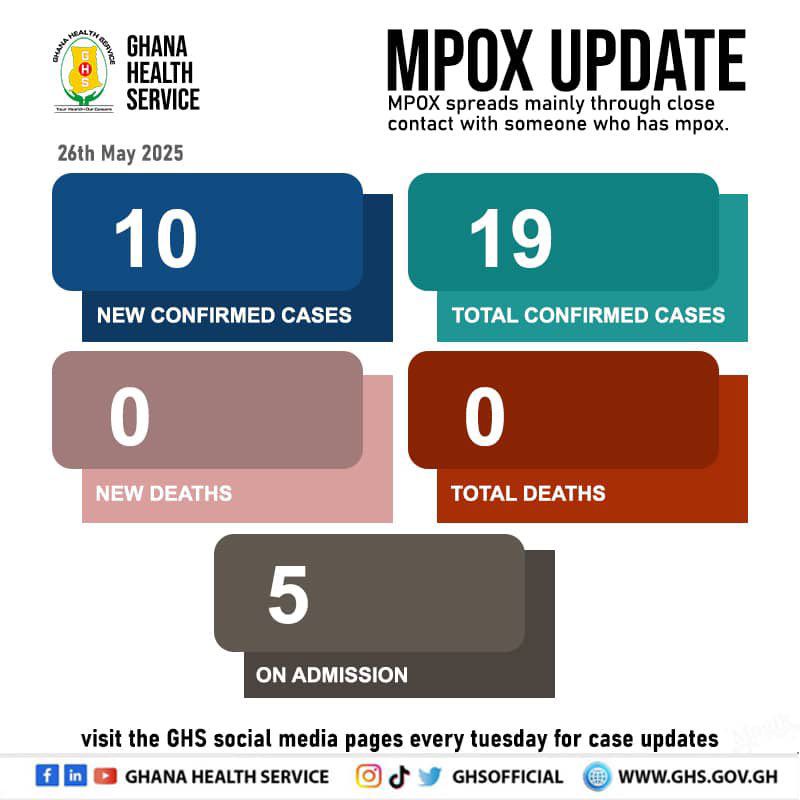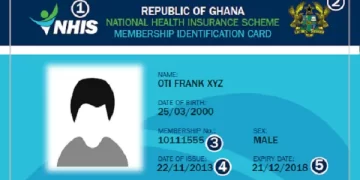The Ghana Health Service (GHS) in Cape Coast is intensifying public education and surveillance efforts to combat the rising cases of Monkeypox, locally referred to as MPox.
As of Monday 26th May, 2025, the Ghana Health Service had recorded a total 19 confirmed cases of MPox, with 5 on admission and no deaths recorded.

The Head of Health Education and Promotion Unit of the Ghana Health Service in Cape Coast, Mr. Festus Adjetey, in an interview on the Atlantic Wave urged anyone feeling unwell to visit nearby health facilities with their National health insurance card for proper investigation.
He mentioned that children, pregnant women, the elderly, and those with weak immune systems especially should pay particular attention to their health.
“We know in literature that children are attracted to Mpox, just like pregnant women and then people who are aging and generally have weak immune system. So, this risk group should kindly take notice of that new disease,” he said.
Regarding treatment and prevention, Mr. Adjetey was clear, that while there is no specific treatment yet, he is optimistic that with effective health education and preventive measures, the outbreak can be contained.
He emphasized that currently within the African sub-region, about eight to nine countries are equally battling with the Monkeypox disease, adding that wha might trigger in-vaccination as an intervention depends on the state a country might find itself in with regards to the disease.
Meanwhile, he expressed hope saying “with some health education and people getting to know how to prevent this, we should be able to contain this and then we shouldn’t get to the stage of vaccination. But then we have vaccines for it.”
He also stressed the importance of early medical consultation and encouraged the public to protect themselves and their families from the spread of Monkeypox
Mr. Adjetey emphasized that individuals who keep rodents, squirrels, and monkeys as pets should visit a veterinary clinic to ensure they receive proper vaccinations.
Additionally, he urged the public to avoid direct contact with such animals and wash hands with soap and water every 30 to 45 minutes.
He mentioned that hand sanitizers should be used in the absence of running water and soap.
Mr. Festus Adjetey reiterated the need for anyone feeling unwell, to seek immediate medical attention.
According to him, these precautions are essential to protecting themselves and their families from Mpox and its spread.
Read also: U.S. Embassy Bids Farewell to Ambassador Virginia Palmer
Source: Aba Aikins/ATLFMNEWS


























